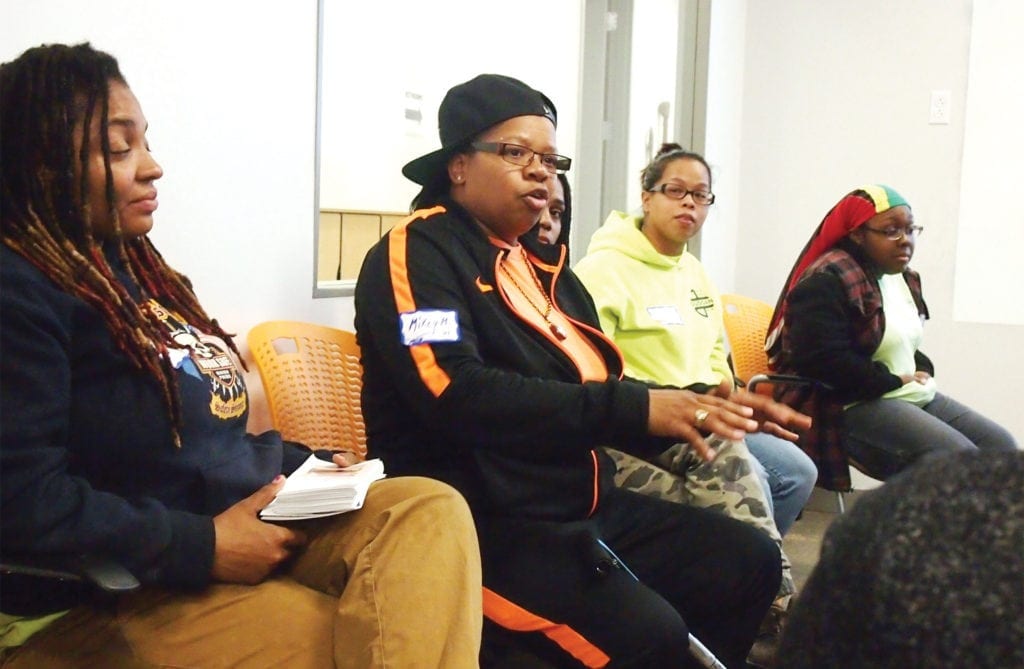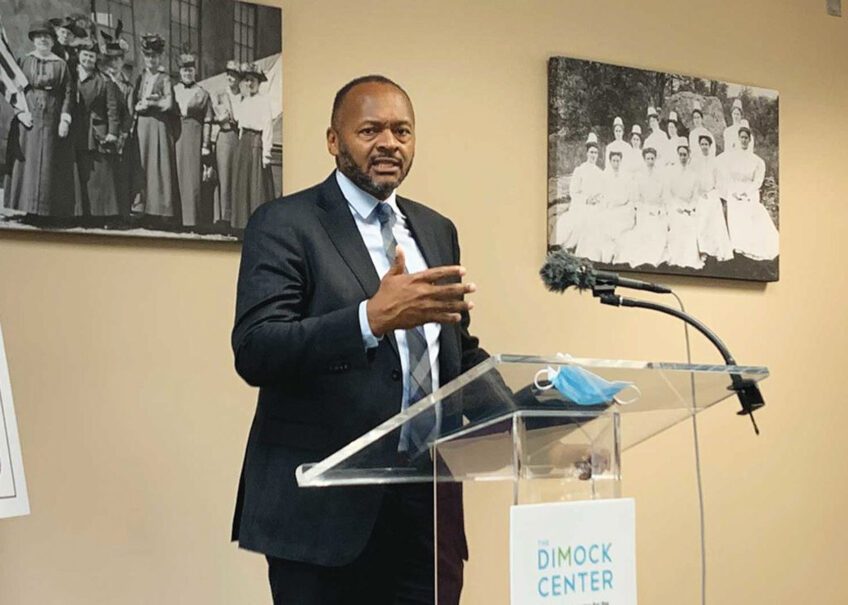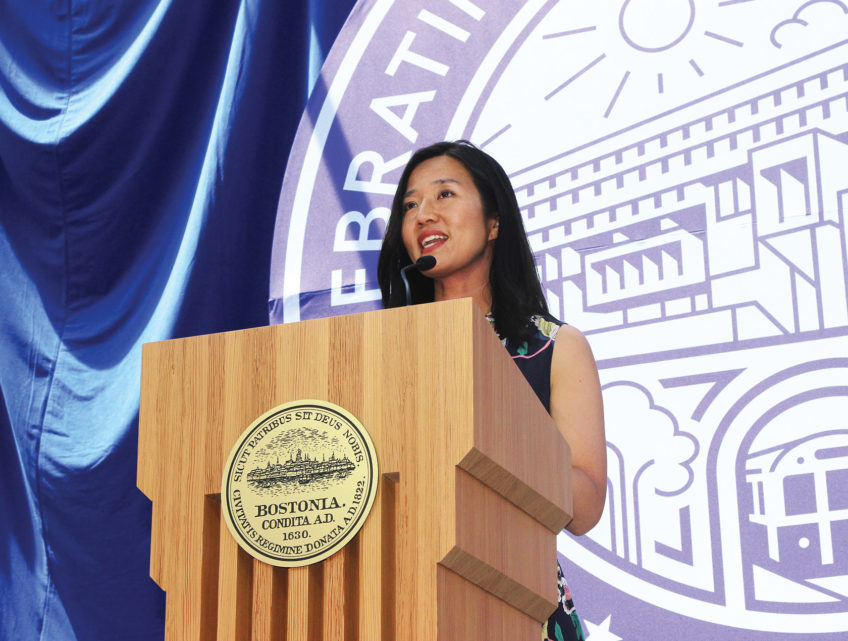Group helps women enter building trades
Veteran construction workers share insights about challenges, advantages of union work

The women file into the hall at the Northeast Center for Tradeswomen’s Equity’s Dudley Square office and are greeted by a group of seasoned construction workers with dust-caked boots, Carhartt trousers and sweat shirts.
A short video, produced by the group Chicago Women in Trades, shows a group of women construction workers luring other women away from desk jobs and menial work to a Tradeswomen’s Training Center, where they later exit wearing construction helmets and work boots.
Next, Elizabeth Skidmore, a business representative and organizer with the New England Regional Council of Carpenters, begins her pitch on the advantages of building trades for women.
“There’s absolutely no reason why more women shouldn’t get involved,” she says. “Women have been doing heavy labor since the dawn of time. There’s no reason we shouldn’t do this with good pay and union benefits.”

Veteran building trades workers meet before the orientation session. Banner Photo
Getting the word out
With starting salaries at or above $60,000 a year, along with health insurance and pensions, the building trades can be a fast track to middle income wages. But women make up just 7 percent of the total number of people in the building trades in the Greater Boston area, a deficit the Northeast Center for Tradeswomen’s Equity aims to rectify.
The organization has been working for 10 years to attract and retain more women in the building trades. Last year, they began hosting Tradeswomen Tuesdays — information sessions for women considering careers in the building trades.
“We need to get the word out as far and wide as we can,” said Susan Moir, research director for the Policy Group on Tradeswomen’s Issues, a coalition of labor groups that includes the UMass Boston Labor Resource Center.
In Dudley Square last week on Tradeswomen Tuesday, the 40-or-so women who filled the folding chairs and stood along the wall in the organization’s conference room were led through a slide show outlining the advantages and challenges of working in the building trades.
More pros than cons
Among the challenges Skidmore cites: working outdoors in cold or wet weather, economic recessions that dry up construction work, a prohibition on marijuana and a small minority of male colleagues who display sexist and racist behavior. Skidmore noted that the building trades unions have well-defined grievance processes and that many in union leadership are fully committed to creating work environments that are supportive to women and people of color.
Women and men receive equal pay in all trade unions, Skidmore noted.
“This is one of the greatest jobs you can get without a college degree,” she said. “It’s CORI-friendly. Nobody cares if you have a record.”
The veteran building tradeswomen who spoke ranged from apprentices one year into their three-year training, to journeyman-level experts with more than 30 years on the job. They spoke with enthusiasm about the benefits of their professions.
“Every six months you get a raise,” said carpenter Mikey Myles.
“You learn a craft you can become really good at,” says Shylanda Johnson, also a carpenter. “That never leaves you.”
Thorough training
“All of the unions put a tremendous amount of training into you,” Skidmore adds. “Earning $75 an hour only works if you can hang a lot of Sheetrock in an hour. The training you get in a union apprenticeship is phenomenal.”
Because there are relatively few women in the trades, most of the experienced journeymen women learn from are male. But the tradeswomen said the men they work with are often eager to share their knowledge with other union members.
Apprenticeships start at $18 an hour and come with periodic raises. Johnson cautioned that it isn’t always easy getting used to the work routine — but it’s doable.
“My daughter was six months old,” she recalls. “I went to the union as an apprentice. I would get up every morning, drop off my kids and be at my job site by 6. If I could do it, you can too.”
Tradeswomen Tuesdays are held at the Northeast Center for Tradeswomen’s Equity office at 2201 Washington Street on the first Tuesday of every month. For more information, visit the organization’s website: policygroupontradeswomen.org.







